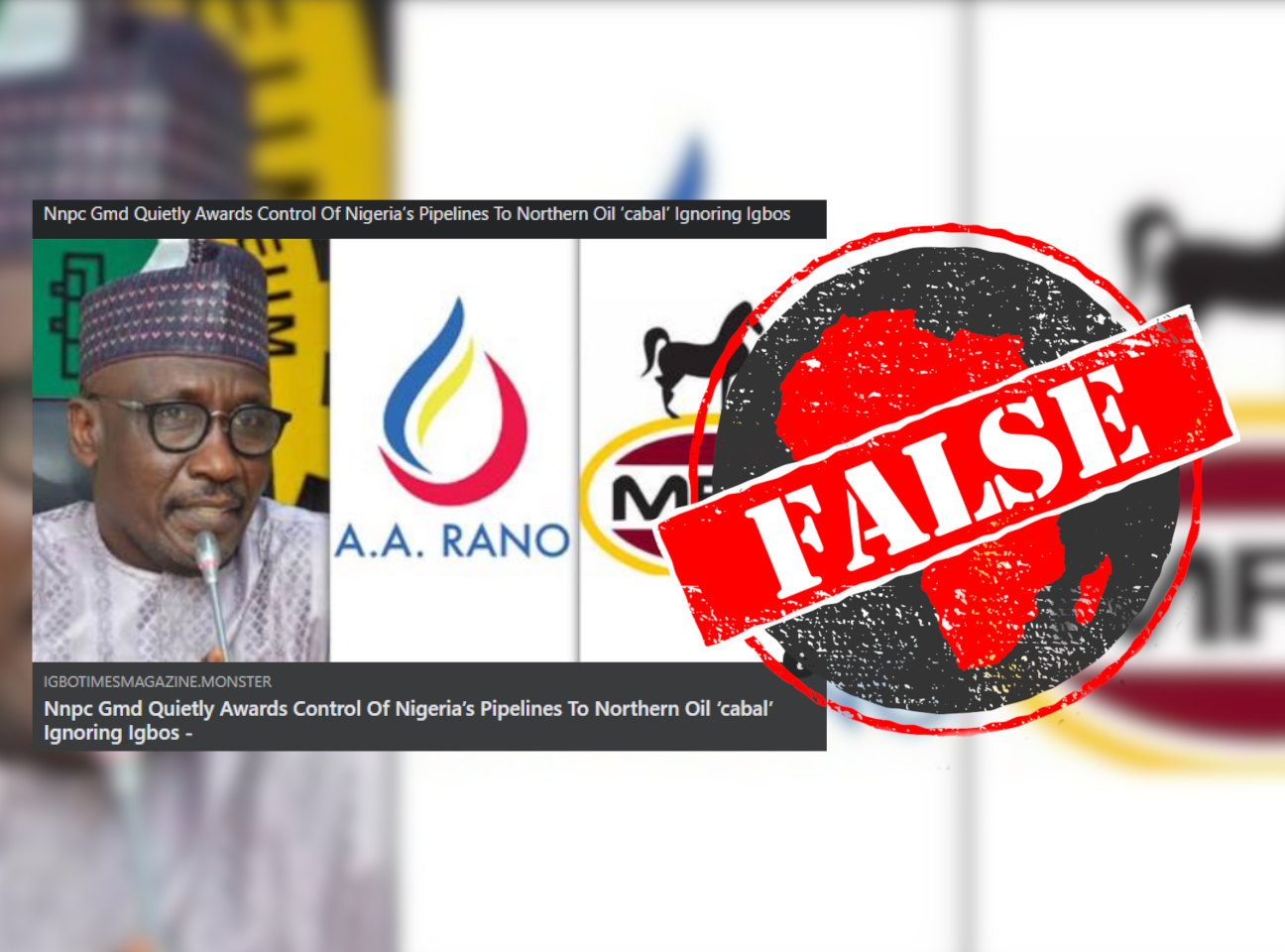IN SHORT: The NNPC Ltd has announced the rehabilitation of the country's pipelines, which have been inactive for years due to vandalism and theft. The company has denied allegations that it awarded the rehabilitation contract to so-called "northern cabals".
Over the years, Nigeria has struggled with the menace of pipeline vandalism and theft of petroleum products. This has made many of the depots of the state energy company NNPC inactive.
On 10 October 2023, the NNPC revealed the four consortia that would fund the rehabilitation of pipelines.
A consortium is a group of organisations, companies or individuals that come together to work on a project that may be too large or complex for any one member to do alone.
The NNPC said the repair was to improve the functionality of pipelines to ensure efficient transportation of crude oil to refineries and distribution of its products nationally.
But a post shared on Facebook in Nigeria claims that NNPC boss, Mele Kyari, has secretly awarded the pipeline rehabilitation contract to northern “cabals”.
Kyari was appointed by former president Muhammadu Buhari, who is from the north, in 2019.
One post reads: “Nnpc Gmd Quietly Awards Control Of Nigeria’s Pipelines To Northern Oil ‘cabal’ Ignoring Igbos.” The Igbo live mainly in the country’s south.
The same claim also appeared here, here and here. But is it true?

NNPC denies claims
In a disclaimer published on its official X (formerly Twitter) handle, the company said it had advertised the contracts and selected the four consortia according to “rigorous evaluation criteria and in line with industry norms”.
“The ownership of these strategic national assets remains with NNPC Limited, and we are fully committed to ensuring their continued operation in the interest of over 200 million Nigerians,” it added.
It lists the names of the companies that make up the four consortia, whose sole responsibility is to provide financial support for the project. There is no transfer of control of assets to them.
Republish our content for free
For publishers: what to do if your post is rated false
A fact-checker has rated your Facebook or Instagram post as “false”, “altered”, “partly false” or “missing context”. This could have serious consequences. What do you do?
Click on our guide for the steps you should follow.
Publishers guideAfrica Check teams up with Facebook
Africa Check is a partner in Meta's third-party fact-checking programme to help stop the spread of false information on social media.
The content we rate as “false” will be downgraded on Facebook and Instagram. This means fewer people will see it.
You can also help identify false information on Facebook. This guide explains how.


Add new comment